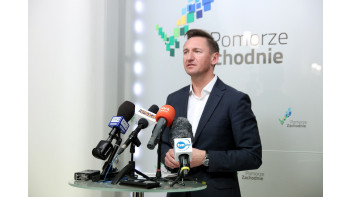A robot crushed a worker at a Volkswagen production plant in Germany.
A robot crushed a worker at a Volkswagen production plant in Germany. A 22-year-old man was helping to put together the stationary robot that grabs and configures auto parts when the machine grabbed and pushed him against a metal plate. He later died from the injuries. Volkswagen did not release the man’s name. A spokesperson for the car company told the Associated Press that the robot can be programmed for specific tasks and that the company believes the malfunction was due to human error.
The first ever reported case of a robot killing a human was on 25 January 1979 in Japan. A 25-year-old Ford Motor assembly line worker was killed on the job in a Flat Rock, Michigan, casting plant. Williams died instantly when the robot’s arm slammed him as he was gathering parts in a storage facility, where the robot also retrieved parts. Williams’ family was later awarded $10 million in damages. The jury agreed the robot struck him in the head because of a lack of safety measures.
We should expect more such cases in the future. Robots are cheaper and considered more reliable than human workers, they do not belong to trade unions, neither they need pay raises nor holidays. And artificial intelligence is getting more and more advanced. So it is natural to expect that companies will invest in robots and AI development. One day a robot will be created that will dominate human intelligence, and not by 10 IQ points, buy by a factor of 100 times. What will happen then? Will humans be able to pull the plug, or will robots treat humans as we treat less intelligent than us home pets today. It is fun to have them, play with them, feed them and we are sorry when they die. And we breed pets and train them so that look nice and behave properly.
Today media are busy with Greek crisis. But Greek problems are peanuts compared to future challenges to humans in a robots-dominanted world. It is coming. Terminator in the real world.

Krzysztof Rybiński
Economy of the XXI century - https://www.mpolska24.pl/blog/economy-of-the-xxi-century
Professor Krzysztof Rybinski holds MA in computer sciences, and Ph.D. in economics. He has an extensive professional background. He worked as software engineer in Tokyo, director of the Soros Foundation programs in CEE, a consultant to the World Bank. He was chief economist and managing director at commercial banks. In 2004, he was appointed the Deputy Governor of the National Bank of Poland by the President of Poland and performed this function for four years until 2008. He was in charge of research, foreign exchange reserves management, payment systems, cash circulation management, monetary statistics and international relations. Under his supervision National Bank of Poland changed its investment strategy which resulted in additional one billion dollars profit for Poland. In 2004-2005, he was member of the EU Economic and Financial Committee, and in 2007-2008 a member of the Polish Financial Services Authority. In 2007-2008 he served as a World Bank alternate governor for Poland. He was also member of the supervisory boards of several financial sector companies (2008-2009) and Partner in Ernst & Young Poland (2008-2010). Since 2010, he has been Professor and President of Vistula University in Warsaw, which offers education to students from more than 30 countries. In 2012 he launched the investment fund called EUROGEDDON, its investment strategy assumes deepening financial crisis in the Eurozone. The fund launch was covered by Financial Times and CNN International.
Krzysztof Rybinski was economic advisor to several Polish governments. In the last few years he was a coauthor of country higher education strategy, e-government strategy and intellectual capital strategy.
Krzysztof Rybinski is author of numerous refereed papers in economics and (co) author of several books. In March 2012 ranking he was ranked the fourth best Polish economist by number of scientific citations. In October 2012 he received the business award of most respected Polish economist. He has also contributed hundreds of articles on economics and financial markets to Polish newspapers. He published in The Wall Street Journal, Financial Times and The Economist. He was the first senior central banker in the world to have started a popular and often quoted by media economic blog www.rybinski.eu already in 2006.

















